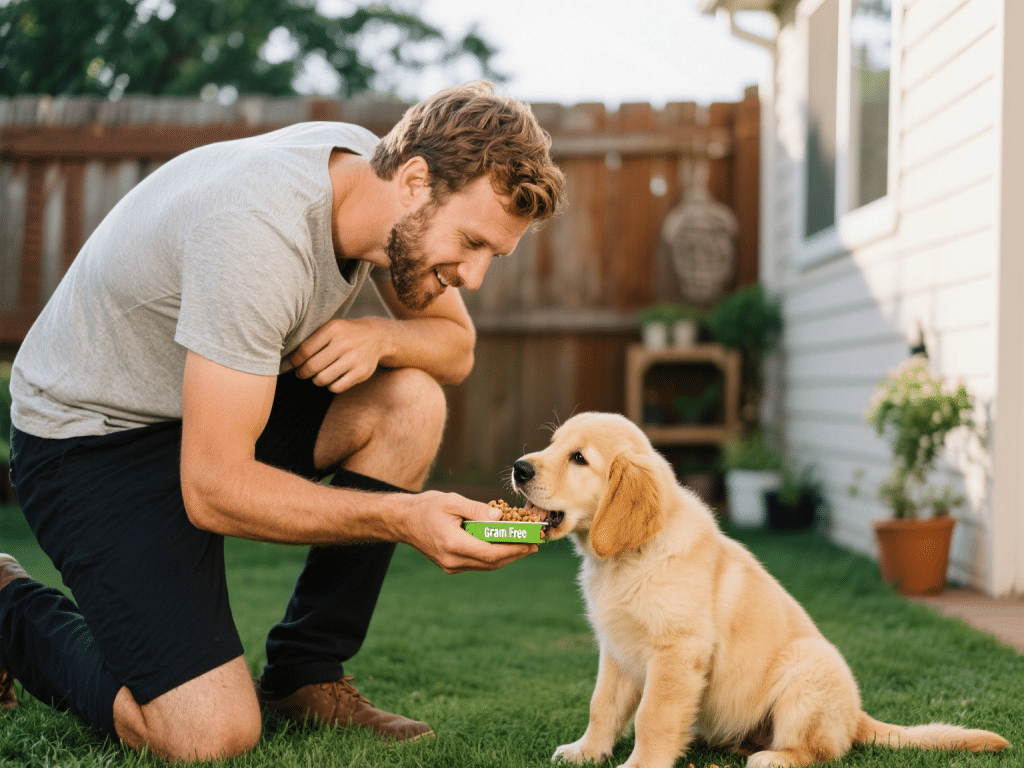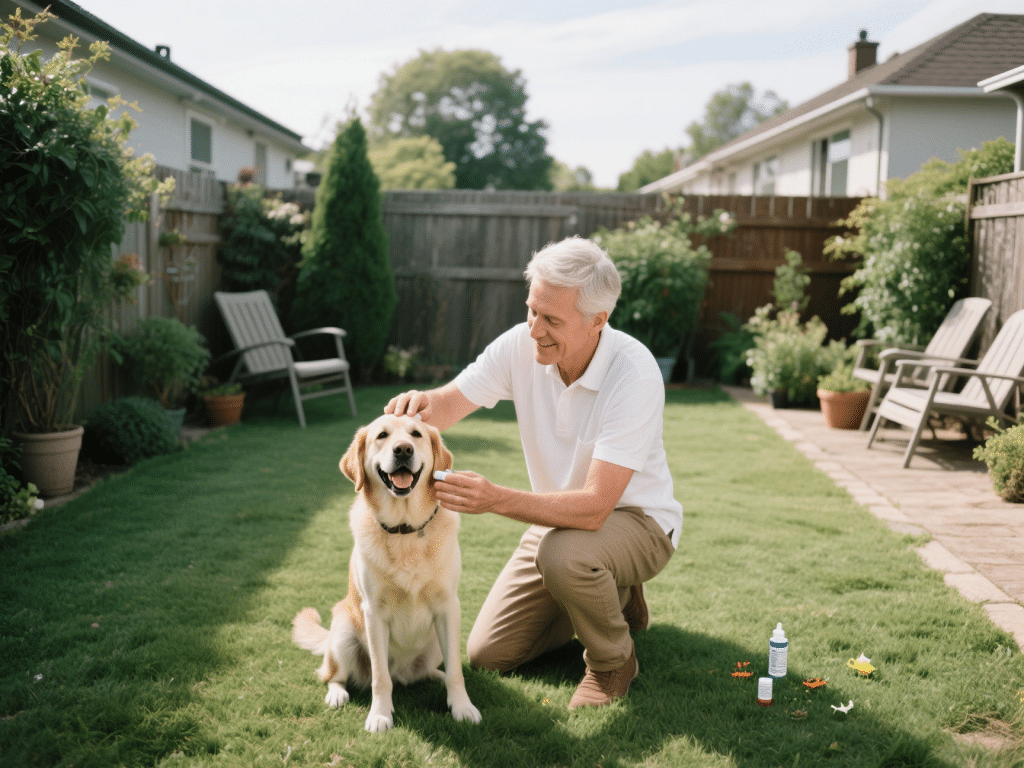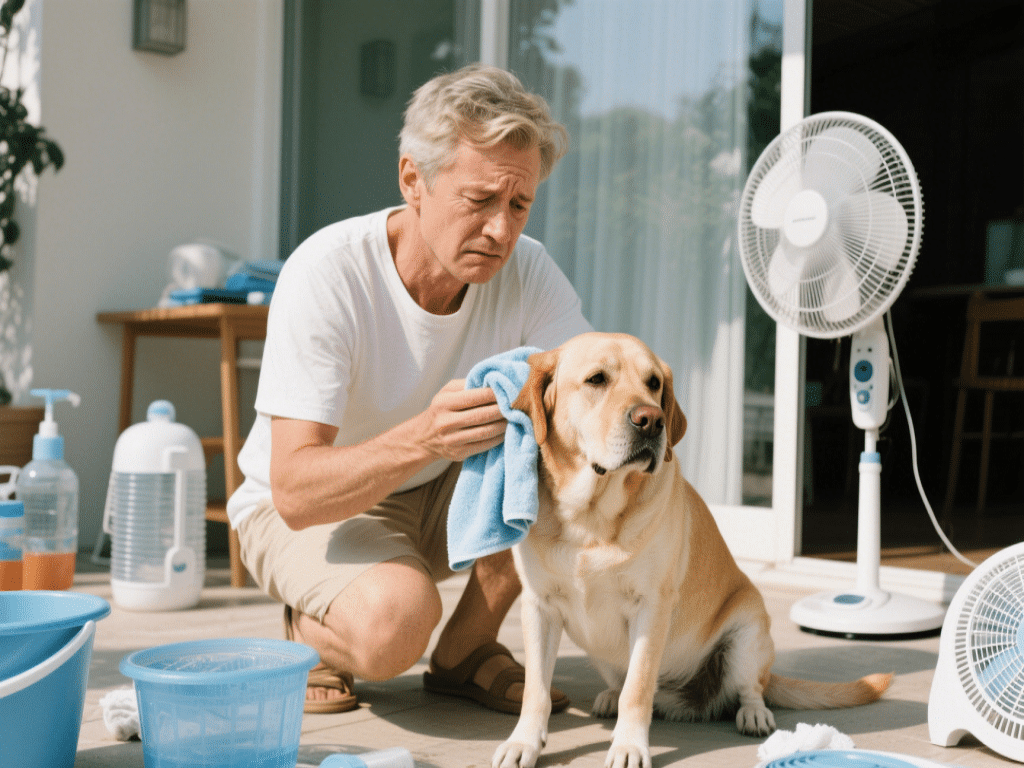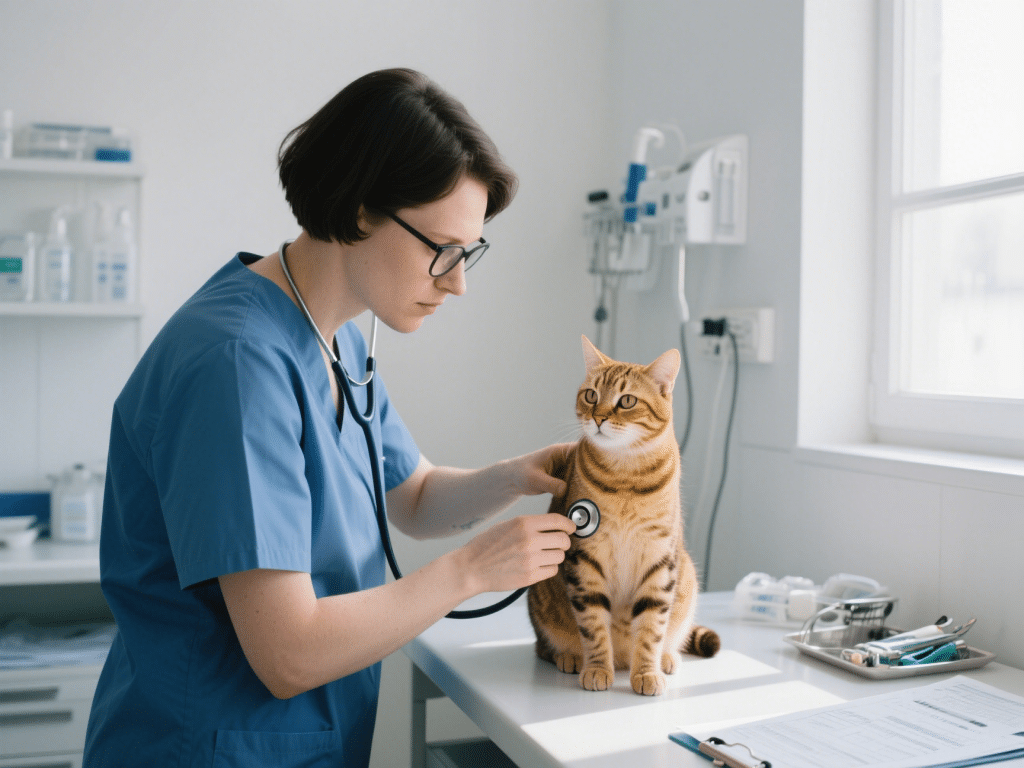
Switching your puppy’s food is not a decision to take lightly — especially when it comes to grain-free diets. As a canine nutrition writer and consultant, I’ve helped dozens of puppy parents transition to grain-free feeding plans safely and successfully.
Why Go Grain-Free?
Grain-free diets may benefit puppies who:
Show signs of grain allergies (itchy skin, loose stool, gas)
Have sensitive digestion
Require a low-carb or limited ingredient diet
However, always consult your veterinarian before making dietary changes, as grain-free diets are not necessary for every dog.
Step-by-Step Transition Guide
Step 1: Choose the Right Grain-Free Puppy Formula
Look for:
High-quality protein sources like turkey, salmon, or duck
Low-glycemic veggies like sweet potatoes or peas
AAFCO-compliant puppy-specific formulations
No artificial additives or fillers
Recommended brands include Merrick, Wellness CORE, and Blue Buffalo Wilderness.
Step 2: Start With a Gradual Mix (Day 1–3)
25% new grain-free food + 75% old food
Feed as usual, observe stool and appetite
Step 3: Increase Ratio (Day 4–6)
Move to 50/50 mix
Watch for signs of tummy upset (vomiting, gas, diarrhea)
Step 4: Near Full Switch (Day 7–9)
75% new food + 25% old food
Keep feeding times and amounts consistent
Step 5: Full Transition (Day 10+)
Feed 100% grain-free puppy food
Maintain feeding journal for behavior and digestion
Signs of a Successful Transition
Normal stool consistency
Healthy appetite
Bright eyes and energy
No scratching or licking paws excessively
Common Mistakes to Avoid
Switching food cold turkey
Feeding grain-free food meant for adult dogs
Ignoring early signs of digestive discomfort
Overfeeding during the transition
Final Thoughts
Grain-free diets can be a healthy choice for the right puppy — but the transition process needs to be slow, thoughtful, and closely monitored. A healthy diet sets the foundation for lifelong wellness, so take the time to do it right.









Comments on "How to Transition Your Puppy to Grain-Free Diet Safely" :